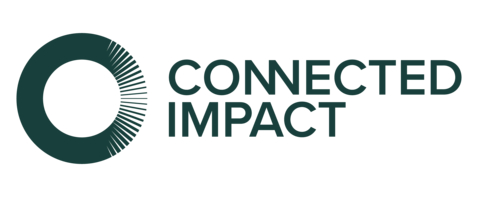AUSTIN, Texas--(BUSINESS WIRE)--New research suggests that almost six in ten (58%) of the top 100 largest public and private US companies are responding to greenwashing concerns by keeping quiet on genuine ESG progress.
With global ESG assets surpassing $30 trillion in 2022 and 85% of investors reporting that ESG assets lead to better returns1, companies that remain quiet may be missing out on potential investment opportunities and consumer demand2.
The Transparency Index 2024 report, published by data insights company Connected Impact, and data science consultancy Ringer Sciences, reviewed over 600,000 corporate communications from 200 companies to identify the “transparency gaps” between what businesses communicate on social media about ESG topics, and what they factually disclose about their targets and performance in annual reports, websites and other corporate documents.
The findings reveal only 2% of US companies “over promoted” their ESG progress, with 58% “under promoting” and disclosing more factual data on ESG than promoted. In a climate of stringent regulatory scrutiny, where mistakes can result in fines and reputational damage, companies may be hesitant to promote their legitimate ESG credentials due to fears of greenwashing accusations. This puts them at risk of “greenhushing” – where organizations choose not to publicize details of their climate targets, or their plan to reach their targets, to avoid scrutiny and allegations of greenwashing.
Dr. Lucy Walton, CEO of Connected Impact, said: “Businesses are under increasing pressure to avoid greenwashing – with increasing regulations and potential fines for those who misrepresent their legitimate ESG efforts.
“But businesses must also take action to avoid ‘greenhushing’. Our data reveals that businesses are more likely to under-promote than over-promote their ESG initiatives. This cautious approach can deter investment and undermine credibility.”
Only four in ten (40%) of companies offered a “balanced” picture, with a minimal transparency gap. The report argues that businesses with a small gap are more trustworthy than their peers. The report examined emissions, ethics, diversity and inclusion topics to represent E, S and G criteria. Emission disclosures had the largest gap, with 67% of companies disclosing more on emissions than they communicated. While governance had the smallest gap, with 40% of companies having a gap between their ethics discloses and communications.
Dr. Walton added, “ESG transparency is currently a missed opportunity for the top 200 businesses in the UK and US. We know most consumers favor responsible brands and transparent businesses. We know a well-governed transparent business attracts more investment and top talent3. This report equips businesses to identify – and close – transparency gaps so we can all make better decisions about where to invest our money, time and attention.”
Notes to editors
Connected Impact
Connected Impact is a data insights company which provides businesses with actionable analysis of ESG disclosures, communications and performance to equip them to better navigate reporting complexities and build stakeholder trust.
Ringer Sciences
Ringer Sciences is a data science and analytics consulting firm that works with companies of all sizes and across industries to help them leverage data to make informed business decisions backed by research. Using a combination of real-world, social, and third-party data sources, we arm our clients with actionable insights and prescriptive recommendations for immediate impact and outline future opportunities tailored to their specific business goals.
References
Figure 1
|
US |
|||
|
|
|
||
|
Balance |
Total Transparency Gap
Sum of disclosure and Communication gap |
“Over promotion”
Disclosure gap |
“Under promotion”
Communication gap |
E |
28% |
72% |
5% |
67% |
S |
33% |
67% |
1% |
66% |
G |
60% |
40% |
0% |
40% |
Average |
40% |
60% |
2% |
58% |
|
UK |
|||
|
|
|
||
|
Balance |
Total Transparency Gap
Sum of disclosure and Communication gap |
“Over promotion”
Disclosure gap |
“Under promotion”
Communication gap |
E |
32% |
68% |
5% |
63% |
S |
28% |
72% |
1% |
71% |
G |
45% |
55% |
1% |
54% |
Average |
35% |
65% |
2% |
63% |
Methodology
The Transparency Index 2024 report, published by data insights company Connected Impact and data science consultancy Ringer Sciences, reviewed over 600,000 LinkedIn and Twitter posts as a proxy for external communications from the FTSE 100 and the top 100 largest public and private US companies using publicly available revenue data.
This report analysed emissions data to represent ‘Environment’, diversity, equity and inclusion data to represent ‘Social’, and ethics data to represent ‘Governance’.
For the disclosure analysis, analysts reviewed over 90 mandatory and voluntary sustainability related disclosures. The disclosures were assessed by reviewing information available on the selected company's corporate and investor relations website pages and embedded documents such as sustainability reports, annual reports and ESG data books.
For the social media analysis, analysts sampled 22,718 English-language LinkedIn posts and 580,664 English-language X posts from the UK’s FTSE 100 and the top 100 largest public and private US companies with active accounts in 2023. These were organic posts, not LinkedIn promotions or engagements.
Connected Impact’s patent-pending methodologies were then used to analyse sampled data. Transparency was calculated by quantifying the balance and alignment between communications and disclosures. A transparency gap is defined as the quantified difference between a company’s factual disclosures on a particular topic and the company’s commentary or communication on the same topic. Transparent communication proportionately aligns the quantity and quality of qualitative content on a topic, with detailed and evidenced quantitative disclosure on the same topic.






